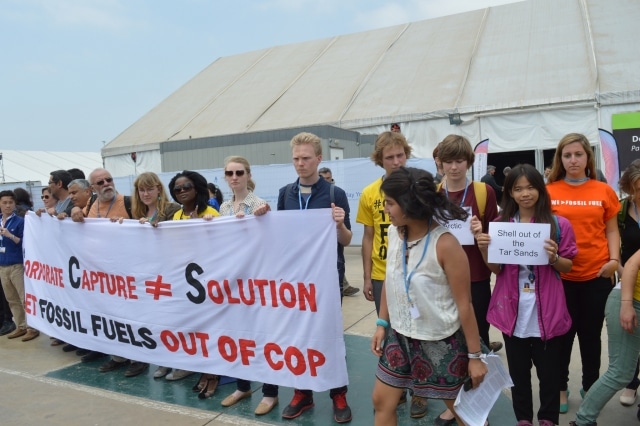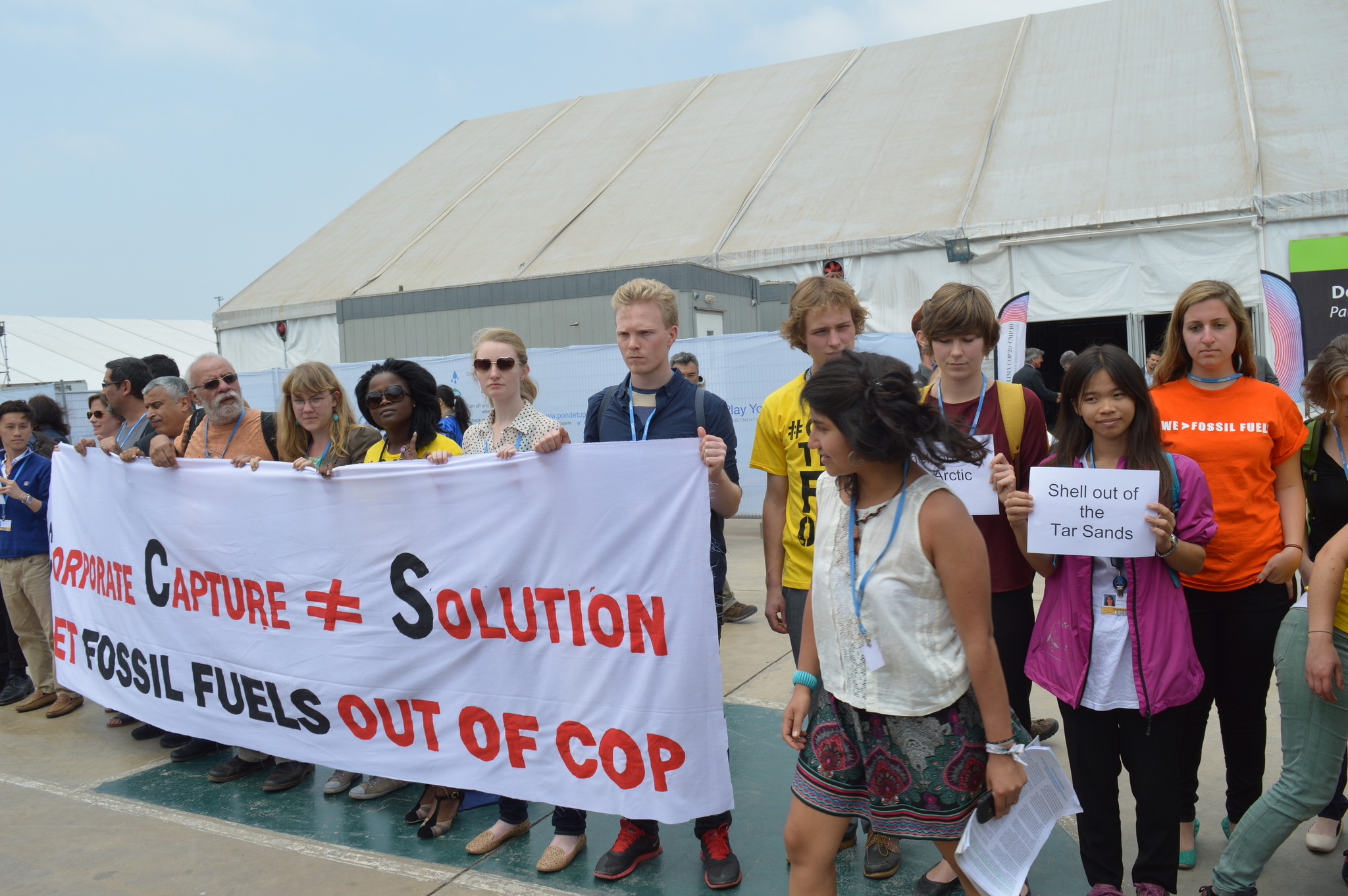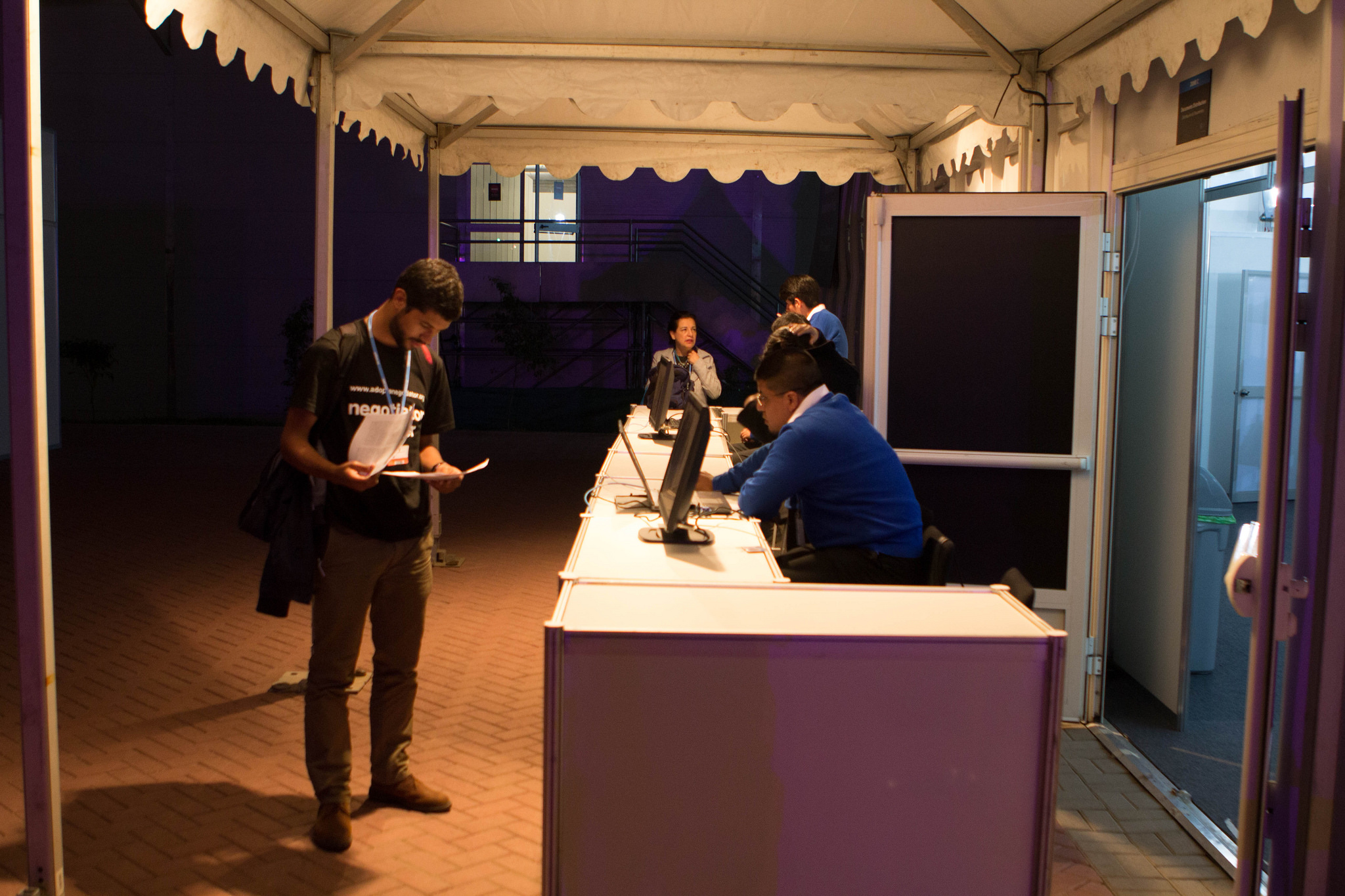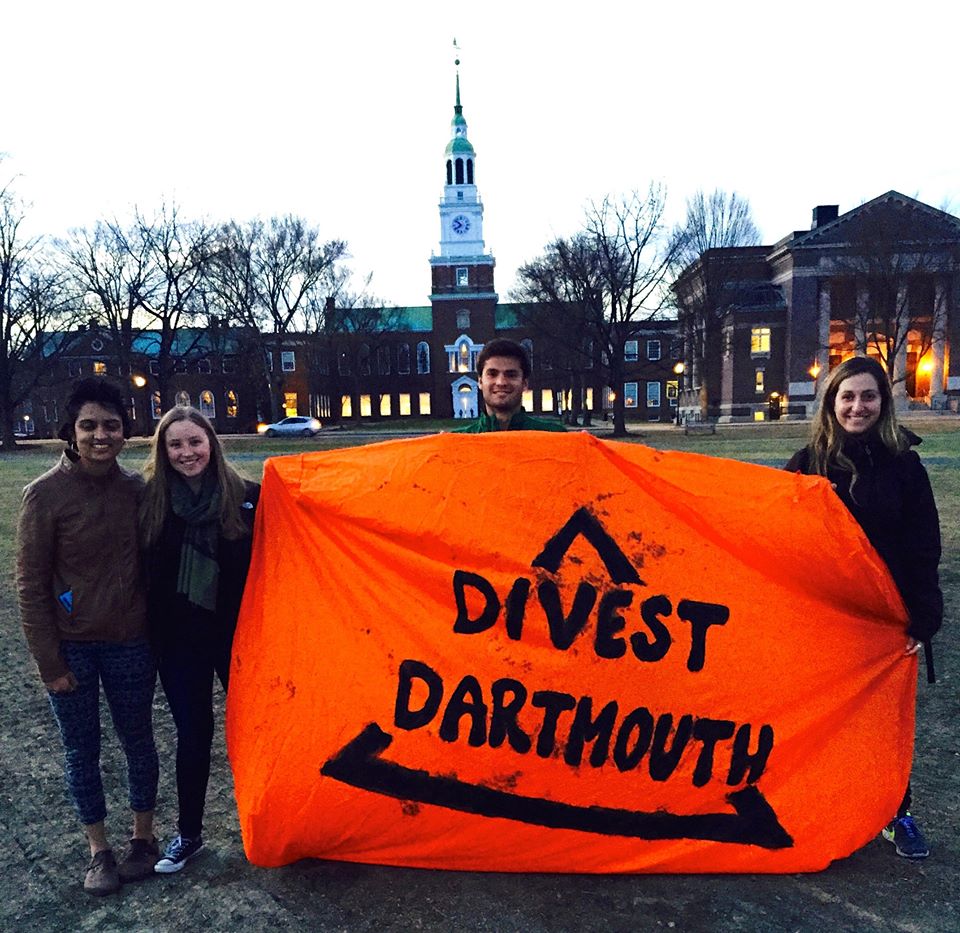This is an guest op-ed by Alex Lenferna, Diego Arguedas Ortiz, Leehi Yona and Chris Wright.
Two minutes.
Once a year, global youth are given two minutes to provide input on global climate policy during the fortnight-long United Nations Climate Summit. While country negotiators deliberate back and forth for days, youth representatives receive 120 seconds to deliver a ceremonial speech that means both nothing and everything.
How can you convey how important your future is when you only have two minutes?
At the 2014 summit, Chevron attended closed-door meetings with the Canadian government, and in 2011 major polluters Sasol and Eskom held official spots on South Africa’s negotiating team. Meanwhile, young people willing to challenge their governments to do more are sidelined and removed from the talks.
In 2013, like many other years, two young activists were banished from the UN for staging a peaceful protest, while fossil fuel giants like Alstom Power, PGE and Lotos were official sponsors. Similarly, this year’s Summit in Paris (COP21) includes sponsors like coal giants EDF and Engie.
As negotiator trackers, we have first-hand experience on the relevance of the talks, the improper influence of the fossil fuel industry and the frustrating role of youth. While young people continue to volunteer and sweat through nights of strategy meetings and drafting sessions for their two minutes, the fossil fuel industry receives $20 million in government subsidies every two minutes.
It’s time to divest
When we were younger, our parents padded us, shielded us and protected us. When we first learned to ride bikes, they made us wear helmets. Somewhere down the line, though, adults stopped protecting us, and gave way to the undue influence of fossil fuel giants. And it’s now our task to protect both them and our own future.
That is why young people first started turning up to the UN climate negotiations. We believed that if we could climb to the top, like Jack in the giant beanstalk, perhaps we could cut these giants down to size and their influence would fall. Time has shown these young people to be resilient, innovative and, against the odds, able to affect the UN climate negotiations in ways not many could have imagined.
Yet, it hasn’t been enough. The deeply inadequate results of the UN process have forced us to realize we need to transform this discussion from the bottom up if we are to be successful.
This is where divestment comes in, as it takes climate change out of air-conditioned spaces and impenetrable UN jargon, and translates it into the deeply moral issue that it is.
Young people across the globe have decided that we can no longer simply wait for world “leaders” to act. Divestment is about bringing power back down to the ground and changing the discussion at the top. It is about dislodging the immoral weight of the fossil fuel industry and reclaiming our two minutes.
90 companies, 63 percent of emissions
In 2013, we realized that just 90 companies were responsible for 63 percent of global greenhouse gas emissions from 1751 to 2010, 50 of them publicly traded, such as Chevron, ExxonMobil and Shell. What if, instead of subsidizing these 90 companies and allowing them to corrupt the UN negotiations, we kicked them out and held them accountable for the harm they have and will cause?
If the UN has committed itself to keeping global warming to below 2 degrees, how can it even allow companies like Exxon and Shell into the room, when they are committed to pushing us towards a four-degree world or worse? It is because of these companies that young people must continue to fight both inside the UN and on the front lines of climate and divestment movements all around the world.
In the face of this corruption, courage and love is at the heart of the global youth climate justice movement. We have a deeply cynical yet deeply idealistic love for the beauty in this world, despite seeing the darkest forms of human nature when sitting at these negotiations while countries condemn us to a future not worth living.
So, what does love feel like when it is heavy, when it is full and demanding and broken?
We recognize that much of our generation may be uprooted and nomadic, forced to migrate without a place to call home. But rather than fear, we rise. We take our tears and water the grassroots, breathing deeply with the love we carry for each other. We paint our banners with our own blood and tears, recognizing that this cause, our future, our existence, are one and the same.
We carry our burdens. From the UN negotiations back home to the devastation of the Philippines, to the pillaging of sacred native lands in Alberta, Canada and to the crippling droughts in South Africa and Costa Rica. As we carry each other’s stories, we realize we are not alone.
As young people who have spent sleepless weeks through the darkest depths of UN climate summits, we have certainly been given reasons to believe there is no longer hope in such spaces. Yet to abandon the UN Climate Talks as hopeless would be a fool’s act, as the Paris 2015 deal and its enforcement are a pressing milestone. This is why we’ll keep coming.
However, the climate justice movement must be much bigger than the UN. We need to flood the system, to protest, to divest and to invest our money, hearts and souls into a better future so that these fossil fuel industry giants lose their influence in the UN climate talks, no matter how close to the table they sit.
The UN space is important, but to deliver on a safe climate requires a parallel agenda of wider, bottom-top activism, for it is only when we build up climate justice on the ground that the UN spaces can really start to move. After all, love deserves more than a two-minute speech in an air-conditioned room.
Alex, Chris, Diego and Leehi in action.
Image Credits: Adopt a Negotiator via Flickr
Subscribe to our newsletter
Stay up to date with DeSmog news and alerts












